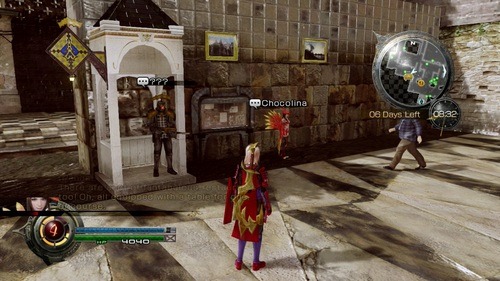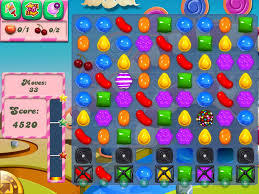Have you ever been really excited for a game to come out, only to find out that one of the games core mechanics is truly annoying, almost to the point where you don’t want to play it anymore?
I recently found this with Lightning Returns: FFXIII and it got me thinking about other game mechanics that can be deal breakers, or are just in general annoying. I took to social networking to ask other gamers what they thought of this, and they came up with some good ideas as well of bad and annoying game mechanics. Lets take a look at them.

Time - This being the one that got me to create this post in the first place. Lightning Returns runs on a 13 day clock. However it starts with only 7 days and you have to complete objectives in order to extend this. The clock is a constant figure on your heads up display and while you have some control and can stop the clock, this is only for short periods of time.
For me, I don’t need a clock adding a major sense of urgency into everything I do (Especially in an RPG). When I play RPG games I want to enjoy the game and the story, I want to explore places and really get into the world they are creating. The time element immediately pulls me out of this and it feels more like a chore that I have to hurry up and do X, Y and Z before this time.
I will eventually finish this game, as over the two previous games I am heavily invested in the storyline. It just now feels more like a chore than an enjoyable gaming experience

Stealth - This mechanic can be very polarizing for people. Some people really like the idea of being able to sneak around, subdue enemies and still complete the main objectives. Others (myself included) like the more blatant approach with guns blazing. Several of the folks who commented on this mechanic noted that stealth usually is a choice, and that another annoying factor about this mechanic is forcing you into a fight, ultimately breaking the feel of stealth.
Also mentioned with the stealth was the idea that when there are choices, both should have the same rewards. Most often one mode is favored over the other, and usually for an arbitrary reason (as opposed to a storyline or logical reason).

Pay To Win/Pay Wall/Subscription - Another annoying mechanic was anything that really involved money beyond the initial purchase. Lets tackle these one at a time:
Pay to win - Their are many competitive games that give you the option to pay to win or to essentially be better than your opponent. From First Person Shooters (FPS) to Multiplayer Online Battle Arenas (MOBA) and many other games (Card Games - Hearthstone!). These games immediately split their population by those who will pay, and those who are playing the game until they hit the Pay Wall - the point where they have to pay to win. This ultimately can ruin games because its basically who is willing to fork over money.
Pay Walls - As mentioned above, pay walls are where you can no longer progress or win a game until you pay money. Free to play games are notorious for this, and most mobile free games have some semblance of this. Candy Crush is a great example, once you get far enough, paying is your only way to continue.
I understand that for free games, their has to be a way to make money. However if games like “Flappy Bird” have taught us anything, Ad revenue seems to generate more than enough cash. Most gamers would much rather pay an upfront cost rather than play a game, get invested, and then SLAM pay wall. It just an easy way to make people angry and quit the game.

Subscription - I believe this annoying mechanic has gotten better over the years, however to many it is a deal breaker. The idea of having to pay a monthly fee for some gamers is just out of the question. My thought on this is why haven’t these game companies thought of making a game subscription only? What I mean by that is rather than the upfront cost that we pay for the game ($60-ish dollars) just charge the subscription fee and let them play. This would get them four months of play time, and I think would bring many more players to your worlds.
Obviously this problem is mainly for MMORPG’s something I have discussed quite a bit about. Not only are players paying for a game, with new content developed regularly, but it is also a social experience.
Games like Guild Wars 2 continue to shatter this model however with their ability to make new content regularly without a subscription. However they make money in other ways.
This is part 1 of 2, next week we will cover: Multiplayer Progression Systems, Quick Time Events, Bad AI, and Filler quests. Hope to see you then!
No comments:
Post a Comment